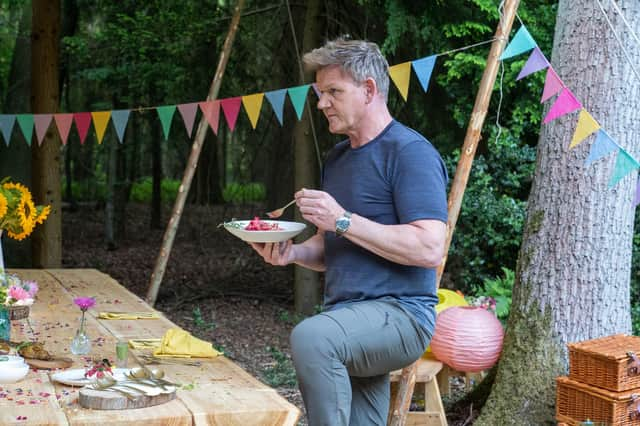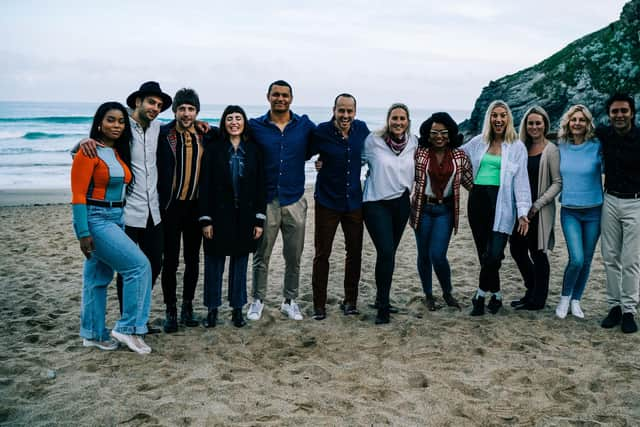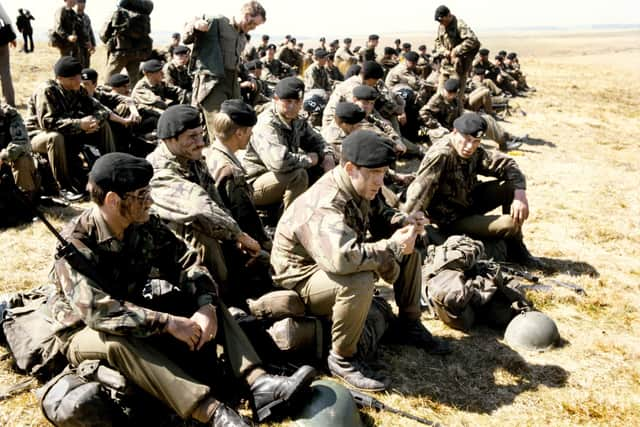Aidan Smith's TV week: Gordson Ramsay's Future Food Stars (BBC1), Falklands War: the Untold Story (C4), Banned! The Mary Whitehouse Story (BBC2)


Ramsay has already acknowledged the similarities between his Future Food Stars (BBC1) and The Apprentice and doesn’t mind if they put Alan Sugar’s nose out of joint. And, cooking up some more pre-publicity or rather flash-frying it, he obviously doesn’t mind putting the Cornwall residents’ noses out of joint, moaning about how he “can’t stand” them. (Wonder what they think about incomers from Johnstone, Renfrewshire?)
Anyway, he’s gets me watching the first instalment. Twelve foodie entrepreneurs are competing for the chance to have him sprinkle some Ramsay hot sauce over their business with an investment from the man of £150,000. It’s watchable enough, and a whole lot better than last year’s dire Bank Balance, a Ramsay show with no food element proving that he’s nothing without it.
Advertisement
Hide AdBefore they can cook, though, the contenders must do as he does and leap into the sea from jaggy cliffs. Valentina causes the most drama here, as she does during the first challenge - creating and selling nosh from a shack - and she has a spat with Victoria which seems real enough and probably wasn’t scripted by a “conflicts coach”. How did I get so cynical? By watching a lot of reality TV, of course. But these two sort out their differences over the noodles.


Would I want noodles on a beach? Maybe I’d be happier with one of the rival team’s toasties, although possibly not for eight quid. As Ramsay says, if they’re not sensational, Cornwall will suffer reputational damage (again).
The third team go with tacos but Ramsay is nervous about the monkfish. And with good cause. These folk all run successful businesses but it must be easy to lose your nerve when you’re cooking on TV and Ramsay’s bellowing at you. Each week one of them gets booted, just like in The You-know-what.
Now, I know TV has to be a mix of stuff, that it can’t all be serious, but bickering chefs in the week of a fantastic documentary like Falklands War: the Untold Story seem even more tedious than normal. Harvey Lilley’s film is on Channel 4, which brought us Big Brother so is hardly blameless because that was the big daddy of epic triviality, lowering the drawbridge for “ordinary people” to thunder across, the genre being “refined” to such an extent we end up with a show called Love Island which is like watching nail varnish dry.
Rant over, back to Goose Green. Forty years ago, before Argentina invaded, few could have placed the Falklands on a map. “That’s got to be in Scotland,” recalls one squaddie when he heard the news. “I was like, why are they attacking the Scots?”


Forty years ago, a civil servant became famous - maybe the first to do so - when Glasgow-born Ian McDonald delivered the televised bulletins from the Ministry of Defence in an emotionless monotone so grave it may have helped “sell” the war to the doubters who wondered what our brave boys were doing down there, 8,000 miles from home.
Advertisement
Hide AdMcDonald, who died in 2019, doesn’t feature in the doc. Neither does the tabloid headline “Gotcha!” and we don’t get to see Prince Andrew being a hero or hear Brian Hanrahan report from the battlefront: “I counted them all out, and I counted them all back.” This is not a glib retrospective in the manner of “The Rock ’n’ Roll Years does the Falklands” but a deep dive into the messy business of war and how, in the South Atlantic, there was utter chaos and very nearly complete disaster. Another ten minutes and we would have lost.
The guys who were there talk with stunning frankness about confusion and cock-up: a land war being run by naval commanders, battalions racing each other to see the white flag raised, big egos, small to non-existent rations, drinking water having to come from puddles, ships being left like sitting ducks - and two out of three SAS helicopters crashing as they attempted to get off a 4,200ft glacier in a hurricane. This kind of puts Gordon Ramsay’s chopper malarkey into some perspective.
Advertisement
Hide AdThe SAS’s General Sir Michael Rose makes for a mesmerising subject; Brigadier Tony Wilson, 5th Infantry, comes out of it all less well (“That bloody idiot Wilson … Brigadier, are you pissed?”). Max Hastings, then a war correspondent, provides limited social context: we couldn’t make cars or even washing machines in ’82 but after seeing off “Johnny Foreigner” were able to wave the Union Jack again. Last word to those suffering PTSD: they’ll never - can’t - forget.
Banned! The Mary Whitehouse Story (BBC2) tells of an army of one who never needed any back-up. The clean-up crusader saw off the BBC’s director-general in a battle over “knickers” in the Beatles’ “I Am the Walrus” then went after the hippies who sexualised Rupert the Bear. Funniest story in the first of two parts is Gay Lib’s infiltration of Whitehouse’s Festival of Light. Just as Malcolm Muggeridge was about to speak, men dressed as nuns stood up and snogged each other and a banner was unfurled: “Cliff Richard for queen”.
Comments
Want to join the conversation? Please or to comment on this article.